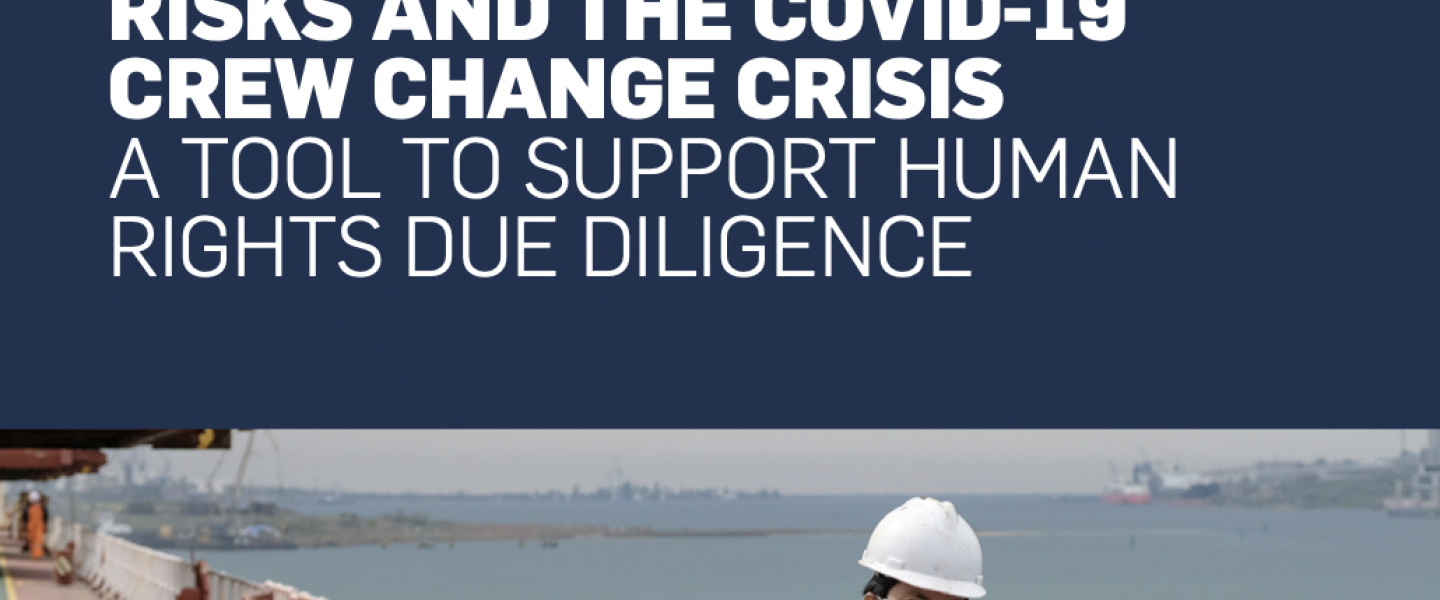Press Release
Friday 7 May 2021
London.UK. Yesterday, The United Nations (UN) launched the Human Rights Due Diligence Tool, a joint initiative of the UN Global Compact (UNGC), the Office of the High Commissioner for Human Rights (UN Human Rights), the International Labour Organization (ILO) and the International Maritime Organization (IMO).
The Tool comes as worries over increased risk of violation of seafarers’ human rights, including fears over what amounts to forced labour. It is no news that the crew change crisis has deprived stranded seafarers of the enjoyment of fundamental human rights such as the right to physical and mental health, access to family life, and freedom of movement. There are reports of seafarers working on board well beyond the 11-month maximum that is set out by the ILO Maritime Labour Convention (MLC), being forced to continue working beyond the terms agreed in their seafarers’ employment agreements, without formal, free and informed consent.
The emergence of new Covid-19 variants and the government-imposed global travel restrictions add to the challenges of the pandemic and the UN agencies are warning that there may be a possible surge in the number of crew members stranded at sea. Over 300,000 forgotten seafarers are currently stranded on board vessels worldwide. Furthermore, some Charterers have been demonstrating irresponsible practices that jeopardise seafarers’ rights, including the appearance of ‘no crew change clauses’ in contracts between charterers and the maritime industry.
The Human Rights Due Diligence tool is intended to help businesses in the maritime sector to uphold their responsibility to respect human rights under the UN Guiding Principles on Business and Human Rights during the COVID-19 related crew change crisis through urgent measures. It consists of three parts, each with a check list of human rights due diligence and it is primarily addressed to charterers and cargo owners. It shall be noted however that the guidelines are a response to the ongoing crisis concerning crew changes and they are not intended to provide comprehensive guidance on human rights due diligence for the maritime sector or the global maritime supply chain.
Comment
Human Rights at Sea welcomes the UN Human Rights Due Diligence Tool, as well as the collective UN recognition of the need for a holistic approach to the human rights of seafarers, including the often neglected right to remediation for violations of human rights abuses at sea. Human Rights at Sea is listed in Annex B of the Tool as a Key Stakeholder and international NGO working on issues of human rights abuses at sea, and has its work listed at Annex H as an important resource for maritime human rights due diligence.
Human Rights at Sea additionally welcomes and endorses the practical steps contained in the Tool that encourage engagement with third parties, including non-governmental organisations (NGOs), who can help enterprises with the verification of human rights due diligence commitments. The Guidelines also urge companies to utilising leverage, both individually and collectively, on governments and maritime transport providers to ensure respect for seafarers’ human rights, further reflecting the core focus and work of the charity since its inception in April 2014.
Free Resources
All our resources covering business and human rights are freely available and can be found on our website and through our dedicated partnership Business and Human Rights Resource Centre.
